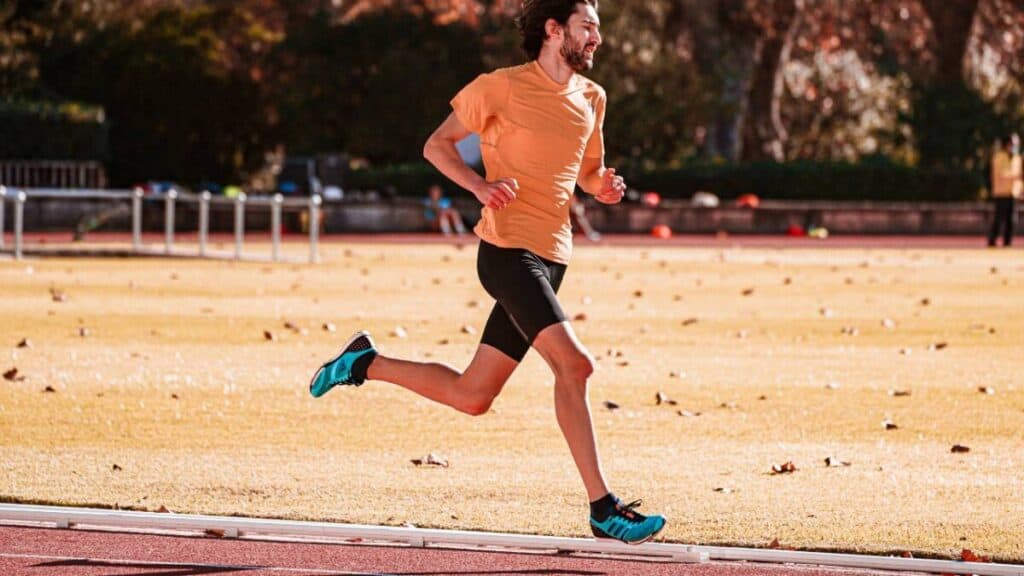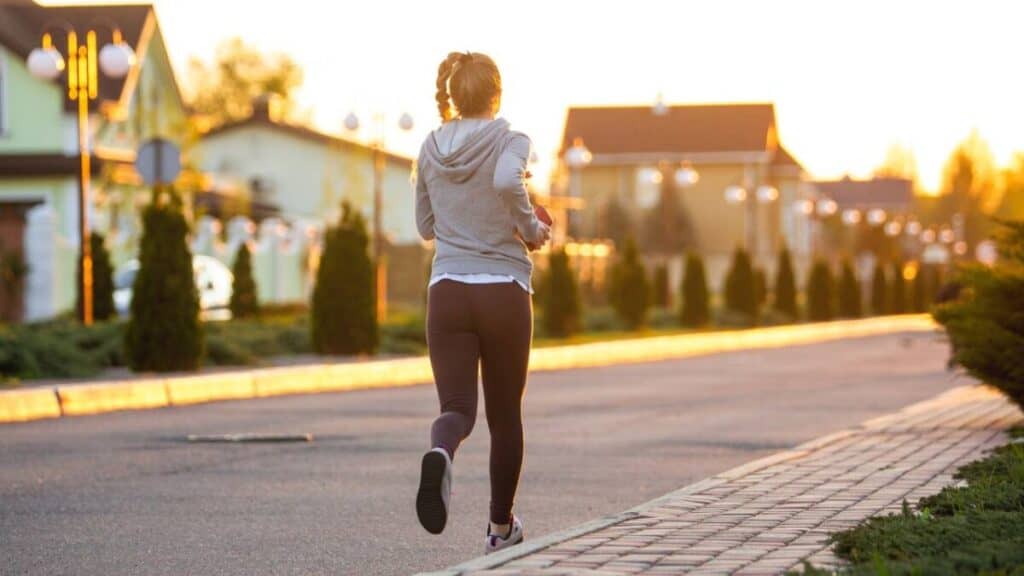Running 11 kilometers (6.8 miles) is a great way to challenge yourself and improve your fitness level. Depending on your experience level, the average time it takes to run 11km can vary significantly. Beginner runners may take up to 1 hour and 30 minutes, while intermediate runners can complete the distance in around 1 hour 10 minutes, and advanced runners can finish in as little as 45 minutes.
To understand your exact 11km run time by age and gender, check out the data tables below. This will give you a better estimate of how long it takes to run 11km for your age group. These times are for average runners and not elite or professional runners.
Table of Contents
Average Time to Run 11km by Age

If you are wondering about the average time to run 11km by age, you have come to the right place. Running is a great way to stay fit and healthy, and knowing the average time for your age group can help you set goals and track your progress. In this section, we will provide you with a data table by age that shows the average time to run 11km.
Running Data Table by Age (Males)
The following table shows the average time to run 11km by age group:
| Age | Average time to run 11km (Males) |
| 15-20 | 01:05:05 |
| 20-25 | 01:05:38 |
| 25-30 | 01:06:11 |
| 30-35 | 01:06:55 |
| 35-40 | 01:11:52 |
| 40-45 | 01:14:26 |
| 45-50 | 01:17:55 |
| 50-55 | 01:21:24 |
| 55-60 | 01:28:33 |
| 60-65 | 01:30:12 |

11 km Running Data Table by Age (Females)
| Age | Average Time to Run 11km (Females) |
| 15-20 | 01:20:51 |
| 20-25 | 01:21:35 |
| 25-30 | 01:21:46 |
| 30-35 | 01:22:08 |
| 35-40 | 01:23:47 |
| 40-45 | 01:24:42 |
| 45-50 | 01:25:04 |
| 50-55 | 01:25:15 |
| 55-60 | 01:33:52 |
| 60-65 | 01:42:40 |
Other Running Distance You Might Find Helpful
As you can see, the average time to run 11km increases as you get older. This is because as you age, your body becomes less efficient at using oxygen, and your muscles become less flexible and less able to generate power.
It’s important to note that these are just average times, and individual results may vary. Factors such as fitness level, training, and overall health can all affect your ability to run 11km. However, this data table can give you a general idea of what to expect based on your age group.
In conclusion, if you are looking to improve your running performance, it’s important to set realistic goals and track your progress. Knowing the average time to run 11km by age can be a helpful tool in achieving your fitness goals.

What is a Good Time for an 11km Run?
A good time to run 11 kilometres can vary greatly depending on factors such as fitness level, running experience, and terrain. For a beginner or casual runner, an average pace might be around 6-7 minutes per kilometer, resulting in a total time of approximately 66-77 minutes.
More experienced runners may complete the distance in 50-60 minutes, while elite athletes can finish in under 40 minutes. Keep in mind that these are rough estimates, and individual times will differ based on personal circumstances and training.

Should You Run 11km Every Day?
Running 11km every day is not recommended for most people. While running can provide many health benefits, it’s important to be aware of the risks associated with running long distances every day.
The main risk of running 11km every day is overuse injuries. Overuse injuries are caused by repetitive strain on the body and can include stress fractures, shin splints, and muscle strains. It’s important to give your body time to rest and recover between runs in order to prevent these types of injuries.
Another risk associated with running 11km every day is burnout. If you’re pushing yourself too hard, you may find that your motivation starts to wane and you don’t enjoy running as much as you used to. It’s important to listen to your body and take breaks when needed in order to stay motivated and avoid burnout.
Overall, it’s important to be aware of the risks associated with running 11km every day before making a decision about whether or not it’s right for you. Listen to your body and take breaks when needed in order to stay healthy and motivated while reaping the benefits of regular exercise!

How Many Times a Week Should You Run 11km?
It is recommended that you begin with running three times a week at lower distances and then gradually increase the frequency as well as the distance. Therefore, you should only run 11km once or twice a week depending on your fitness level.
If you are looking to run 11km a week, it is important to start slowly and increase your mileage gradually. As a general rule of thumb, you should only increase your running mileage by about 10% per week in order to keep your legs feeling fresh and muscles healthy.
For example, if you can comfortably run 3km in one session, aim to increase this by 1km each time until you reach 11km. Additionally, it is important to include rest days into your routine so that your body has time to recover.
Running 11km a week can be incredibly beneficial for both physical and mental health. Not only will it help improve your cardiovascular fitness but it can also help reduce stress and anxiety levels.

Factors Affecting Average Time to Run 11km
When it comes to running, there are many factors that can affect your average time to run 11km. In this section, we will discuss some of the main factors that can impact your performance and provide tips on how to improve your running time.
Running Training
Training is the most crucial factor when it comes to improving your running time. The more you train, the better your endurance will be, and the faster you will be able to run. To improve your running time, you should aim to run at least three to four times a week and gradually increase your distance and speed.
Interval training is an effective way to improve your running speed and endurance. It involves alternating between periods of high-intensity running and periods of rest or low-intensity running. This type of training can help you build endurance and increase your running speed.
Running Pace
Your running pace also plays a significant role in determining your average time to run 11km. Running too fast or too slow can affect your performance. To improve your running time, you should aim to maintain a consistent pace throughout your run.
Rest After Runs
Rest is essential when it comes to improving your running time. Your body needs time to recover and repair after a run. Overtraining can lead to injury and fatigue, which can negatively impact your performance. It is essential to take rest days and listen to your body.
Diet & Nutrition for Your 11 km Runs
Your diet can also affect your running performance. Eating a balanced diet that includes carbohydrates, proteins, and healthy fats can provide you with the energy you need to run. It is also essential to stay hydrated before, during, and after your run.
Remember, these are just average times, and your performance may vary depending on your fitness level, training, and other factors. By following the tips outlined in this section, you can improve your running time and achieve your goals.

Average Time to Run 11km Summary
If you’re planning to run 11km, knowing the average time it takes to complete the distance can help you set realistic goals and track your progress. In this article, we’ll provide you with data on the average time to run 11km by age group.
According to our research, the average time to run 11km varies significantly by age. While younger runners tend to complete the distance faster, older runners may take longer due to factors such as decreased fitness levels and increased risk of injury.



